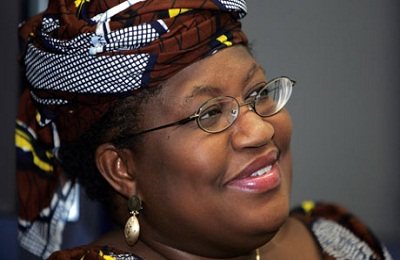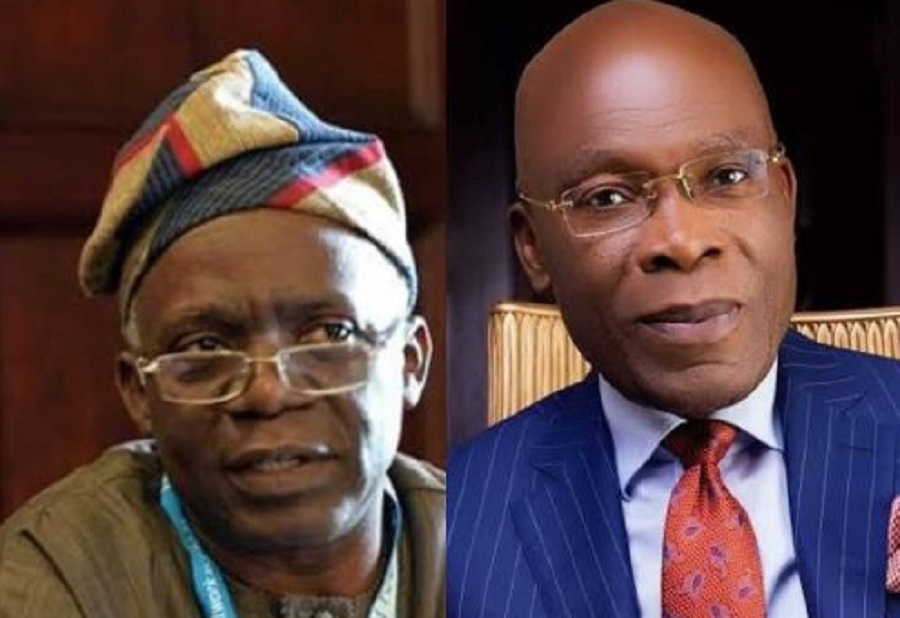News
Nigeria Missing in Africa’s Top 5 Performing Economies of 2013

That Africa is set to become the world’s economic engine in the next 10 years or during the 21st century is no doubt a well-known fact.
Unfortunately, Nigeria is not one of the top five. Countries like Malawi, Mozambique, Angola, Ethiopia and Zambia outperform her,.
But that almost all the 54 countries on the continent compete fiercely to be in the top position of the 5 fastest-growing economies in Africa is little known, according to Venture Africa.
Venture Africa said, however, it becomes evident when the names of the top performing economies on the continent changes each year.
According to auditing firm Ernst & Young’s 2013 Competitive Survey, the projected GDP growth from 2012-2017 Malawi tops the list with an expected GDP growth during this period of 7 percent and followed closely by Mozambique at 6.8 percent economic growth.
In the third place is Angola with the projected GDP growth of 6.5 percent in the next six years. Ethiopia’s GDP growth is expected to be 6.3 percent while Zambia is expected to grow its GDP by 6.2 percent.
Despite the negative impact of global economic crises, the size of the African economy has more than tripled since 2000, according to Ernst & Young. The continent also hold bright prospects, with many countries in Africa set to continue recording high economic growth levels in the future.
The cynics will more often than not opine that most of this economic growth is being driven by natural resources. But that is certainly not the case.
According to the International Business Times website, the number of Africans living in the cities has surged dramatically and it could soon surpass that of India, which is considered to be the leader at this stage.
It is believed that in the next 16 years, half of all Africans will be living in the cities. It is also understood that Africa’s middle class is set to be bigger than that of India.
The market influences of the west, which Africa is increasingly approving, are pushing down inflation and reducing sovereign debt.
Intra-African trade is changing on the continent with Africa boasting five growing trade blocs. In total, Africa has a $2 trillion economy, according to the International Business Times.
Underlisted are the top performing economies in Africa.
Malawi
According to the African Economic Outlook, Malawi’s economic growth in 2013 and next year is forecast to bounce back to 5.5 percent and 6.1 percent respectively.
The state has renewed its commitment to credible macroeconomic policies. Good governance has prompted the International Monetary Fund (IMF) to approve a new Enhanced Credit Facility (ECF) programme for the country. This has led to the reopening of donor financial back-up to Malawi.
Mozambique
Mozambique’s steady ramping up of coal production, the implementation of large infrastructure projects and credit expansion are expected to continue to drive growth to 8.5 percent in 2013 and 8 percent in 2014, according to the African Economic Outlook.
The World Bank says the country’s emerging extractive industry could also provide the means for Mozambique to reach the status of a middle-income country by 2025.
Angola
Angola’s economy bounced back robustly after recording sluggish growth due to oil and financial crises.
The Report forecast growth in Angola to rise to 8.2 percent in 2013 and 7.8 percent in 2014 on the back of oil and gas sector expansion. There is also a public expenditure programme made to inspire economic diversification.
Ethiopia
Ethiopia’s economy saw a ninth successive year of vigorous growth last year estimated at 6.9 percent, the African Economic Outlook states.
The growth was driven by a surging role for services and industry. This motion is set to stay until next year.
Zambia
Growth in real GDP moved faster to 7.3 percent last year from 6.8 percent posted in 2011. In the next 24 months, economic growth in Zambia is forecast to stay strong.
In 2012, the economy continued to be strong driven by expansion in agriculture, construction, manufacturing, transport and finance. According to the African Economic Outlook, prospects for the future of the country remain bright.
News
Sanwo-Olu Hails Jumia for Giant Strides in Growing Nigeria’s E-Commerce Sector

The Lagos State Governor, His Excellency Babajide Sanwo-Olu has commended Africa’s leading e-commerce platform, Jumia Nigeria, for its giant strides and in the growth of the country’s e-commerce sector, as well as its unique contributions to its economic development.

He said that Jumia has earned its place as a major brand, with its growth and trajectory in the country’s e-commerce ecosystem over the years which, he said, has made it a household name. He urged the company to not only strive to maintain its excellent service standards, but to also work towards improving them.
The Governor who was speaking during a courtesy visit by the management of Jumia Nigeria to the State House in Marina on Thursday March 27, reaffirmed the strategic importance of the company in the economic development of Lagos State and Nigeria, especially in job creation.
He restated his administration’s commitment in ensuring that Lagos State remains environmentally friendly for businesses to grow.
“Our administration has always prioritized creating an enabling environment for businesses to thrive. Through various initiatives, we have strengthened the ease of doing business, and fostered innovation to drive economic growth, and we will continue to support businesses and create opportunities that will aid in their growth”, Sanwo-Olu said.
Governor Sanwo-Olu said that the Lagos State Government remains open to collaborations with the private sector to enhance service delivery, infrastructure development, and create opportunities for residents, with the aim of building a resilient and sustainable future.
He said the administration recognises the importance of working with the private sector to achieve its goals of improving the lives of its citizens.
Speaking also, the Chief Executive Officer of Jumia Nigeria, Sunil Natraj, thanked the governor for creating an enabling environment in the state for businesses like Jumia to grow. He stated Jumia’s commitment to contributing towards the growth and development of the state, and the country.
Natraj said the company has made tremendous strides from its early days as a tech start-up in Lagos and has grown to become the number one e-commerce platform in Nigeria, with a presence in nine African countries. He said the company presently employs hundreds of Nigerians directly, and thousands more indirectly as independent sales agents and partners.
He restated Jumia Nigeria’s commitment to providing excellent service, focusing on delivering exceptional value and fostering long-term relationships with its customers around the country.
Among other things, he said the company is actively working to enhance customer experience, aiming to simplify the e-commerce process, making it easier for customers to navigate and shop online.
According to him, Jumia aims to transform everyday life in Africa by making it easier for consumers to access goods and services conveniently and affordably, adding that the company is focused on expanding access to retail across the country.
News
NNPC Ready to Go to Capital Market for IPO- CFIO

Nigerian National Petroleum Company (NNPC) Limited has announced its readiness for the capital market with an Initial Public Offer (IPO) now in the final stage.

Mr. Olugbenga Oluwaniyi, chief finance and investor relations officer (CFIO), NNPC, stated this at a consultative meeting with partners at the NNPC Towers, Abuja, on Thursday.
He said the move aligned with the provisions of the Petroleum Industry Act, 2021.
He said NNPCL was currently engaging with prospective partners in an exercise tagged: “NNPC Ltd. IPO Beauty Parade” in line with capital market regulations before the commencement of the IPO.
According to the CFIO, the aim of the IPO Beauty Parade is to assess potential partners and determine in what ways they could be of support to the company.
He listed the areas of partnership required to include Investor Relations, IPO Readiness Advisors, and Investment Bank Partners.
He said the company with the best offer in terms of project partnership would be selected for each of the three categories.
The PIA provides for NNPCL to list its shares in the capital market in line with the provisions of the Company and Allied Matters Act (CAMA) 1990.
News
Court Throws Out Falana’s Fraud Case against Ekeh, Zinox Boss and Others

Federal High Court in the Bwari Judicial Division has thrown out a case of fraud filed against the Chairman of Zinox Technologies, Mr. Leo Stan Ekeh, his wife, Chioma Ekeh, and 11 others.

Femi Falana and Leo Stan Ekeh
This is the umpteenth time.
The latest is the dismissal of the suit by Justice Akpan Okon Ebong of the FCT High Court, who struck out the case filed by Mr. Femi Falana SAN, purporting to act on a fiat donated to him by Mr. Lateef Fagbemi SAN, attorney general and minister of Justice of the Federal Republic of Nigeria, against Mr. Leo Stan Ekeh, chairman of Zinox Technologies, and 12 others.
The other defendants are Mr. Chris Eze Ozims, Oyebode Folashade, Charles Adigwe, Obilo Onuoha, Agartha Ukoha, Anya O. Anya, Femi Dosumu, Nnenna Kalu, Admas Digital Technologies Limited, Technology Distributions Limited and Zinox Technologies Limited.
In the suit No. FCT/HC/CR/985/24 filed in November 2024, Falana, on behalf of his client, Benjamin Joseph, the CEO of Citadel Oracle Concept Limited, an Ibadan-based computer firm, filed charges against Ekeh, 9 other individuals and 3 companies before the Federal High Court in Abuja for allegedly diverting N162,247,513.80 being payment for laptop supply contract at the Federal Inland Revenue Service (FIRS) Headquarters which Technology Distribution Ltd (now TD Africa), the biggest tech equipment distributor in sub-Saharan Africa supplied on behalf of Citadel in 2012.
However, in the certified true copy of the judgment dated March 20, 2025, Justice Ebong ruled as follows: “It is my conclusion based on the foregoing that this charge (No. FCT/HC/CR/985/2024, Federal Republic of Nigeria v Leo Stan Ekeh and 12 ORS) constitutes a gross abuse of court process and is liable to dismissal. I accordingly hereby dismiss it.”
Before arriving at his judgment, which has put the final nail in the coffin of a case that other courts had also dismissed in the past as dead on arrival, Justice Ebong considered the outcome of previous cases and petitions filed by Mr. Joseph, none of which was in his favour.
Justice Ebong said: “One intriguing aspect of this matter is that none of the law enforcement agencies involved in the investigation of the nominal complainant’s (Mr. Joseph) numerous petitions has found merit in any of his allegations against the defendants. When called upon before Senchi J. (Justice Danlami Z. Senchi) to prove his said allegations to the court, he failed to turn up in court. One then wonders on what premise he wants to maintain this campaign of persecution against the defendants.”
Previous judgments on the matter had established that rather than being the culprit, Ekeh and the 12 others were actually the victims of a failed money diversion scheme plotted by Mr. Joseph and Citadel.
When contacted, one of the defendants, Mr. Chris Eze Ozims, a lawyer, said: “This ruling truly reflects our consistent position on the allegations, and it is good that we have been vindicated, once more, by a competent high court.”
He asserted that the judgment of Justice Ebong was consistent with the position of the defendants and in tandem with the rulings of other judges who had previously adjudicated on the same matter.
Mr. Matthew Burkaa SAN, chief counsel to the defendants, described the judgment as a victory for integrity and the rule of law.
Court papers showed that Falana’s suit was based on the same claims that various courts had dismissed in the past as falsehood and baseless. The case arose from a contract between Citadel and Technology Distributions Limited over the supply of computers to the Federal Inland Revenue Service (FIRS), a project fully funded by Technology Distributions and has no bearing whatsoever with Zinox and its promoter, Mr Leo Stan Ekeh.
It will be recalled that Mr. Joseph had lost the case and its adjunct suits at different courts in the past. In his petition to the police in 2013, police authorities discovered that Mr. Joseph provided false information to the police, prompting the Inspector General of Police to charge him for false information in charge no.CR/216/16.
In another case filed by the EFCC in his instance against his partner, Princess Kama, in charge no. FCT/HC/CR/244/2018, Honorable Justice Danlami Z. Senchi of the FCT High Court (as he then was) dismissed as false all the allegations made by Benjamin Joseph, and imposed the sum of N20 million as damages against him for false petitioning in relation to these same allegations.
Earlier court papers showed that Joseph, in his statement on oath in suit No:LD/4335/2014 in the High Court of Justice, Lagos State, dated June 28, 2019, averred that his company, Citadel, did not execute any contract with FIRS and that he was not aware that a contract had been awarded to Citadel.
In his deposition under oath, Joseph claimed that Citadel “did not at any time execute any contract for the FIRS and neither did the 2nd defendant (Princess O. Kama) who is its agent in respect of the contract it bid for with the FIRS deliver/release any documents to the Claimant (Citadel) indicating that the contract it bid for, or any other contract was awarded to it by the FIRS or any other body.”
However, a letter from the FIRS addressed to the chamber of Afe Babalola & Co dated February 11, 2014 (FIRS/PD/GDS/2559) and signed by one Idrissa Kogo, Head Legal Department, stated: “Contrary to your client’s claim that they knew nothing about the execution of the contract awarded to them and that they did not receive any payment for the execution of the contract, our record reveals otherwise.
“Your client instructed FIRS through a letter dated December 13, 2012, to deal with Princess O. Kama (Your client’s agent) in relation to the contract. Through three separate letters dated December 20, 2012, your client instructed FIRS to pay to the client’s account with Access Bank plc. Please note that FIRS acted in compliance with your client’s instruction and with due diligence,” the FIRS letter stated.
The FIRS letter was a response to inquiry by Afe Babalola Chamber, lawyers to Citadel Oracle Concept Ltd and its MD, Mr. Benjamin Joseph, at that time.
The current charges filed by Falana on the basis of a fiat from the Attorney General is the third in a row as Mr Joseph had earlier filed charge no.CR/469/2022, which was struck out by Honorable Justice C. O. Oba of the FCT High Court, by an order dated November 8, 2022.
Determined to push through with his case, Mr Joseph filed the same charges before Honorable Justice A. S. Adepoju of the FCT High Court, and the charges were, once again, struck out by the Honorable Court on March 19, 2024, with Honorable Justice Adepoju holding that: “This matter was brought in dead, extinct and should be confined into the dustbin of history…I hold that the instant suit is an abuse of the process of court, and it is hereby struck out accordingly.”

 Telecom3 days ago
Telecom3 days agoAgain, Labour Fumes, Threatens Shutdown of Telcos over Non-Implementation of 15 Percent Tariff Reduction

 News3 days ago
News3 days agoNNPC Ready to Go to Capital Market for IPO- CFIO

 E-Business3 days ago
E-Business3 days agoFG Launches Online Visa Approval Centre

 E-Business3 days ago
E-Business3 days agoQNET Disassociates From Fraudulent Academy in Abuja, Supports EFCC Arrest

 Telecom2 days ago
Telecom2 days agoIHS Nigeria Hosts Telecom Industry Stakeholders to Discuss Protection of Critical National Infrastructure in Lagos State

 E-Financial2 days ago
E-Financial2 days agoTitan Trust Bank Selects Oracle FSS for Core and Digital Banking Technology

 E-Business3 days ago
E-Business3 days agoFirm Discovers Sophisticated Chrome Zero-day Exploit Used in Active Attacks

 Telecom3 days ago
Telecom3 days agoEverything You Need to Know About MTN’s MIP 2025 Fellowship Webinar

























